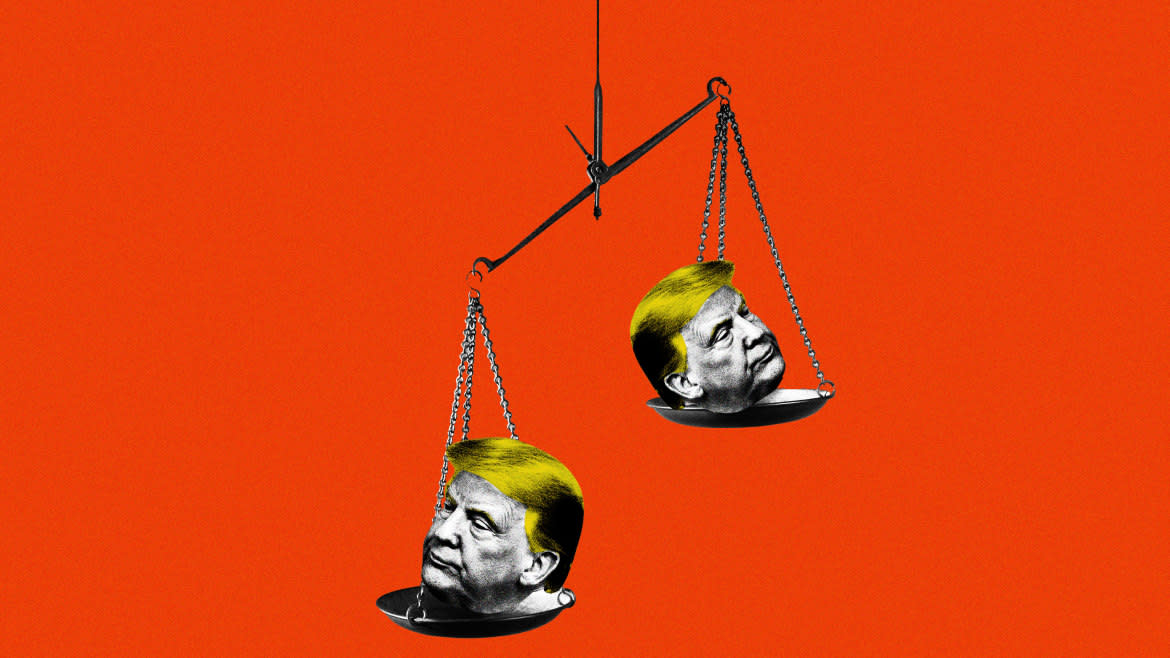Trump Was Indicted for Being Wrong—Which Is Not a Crime

In The Picture of Dorian Gray, Oscar Wilde wrote “the only way to get rid of a temptation is to yield to it.” In the second federal indictment against former President Donald Trump, Special Counsel Jack Smith seems to follow that advice in bringing a prosecution that pursues the president at any cost, even the First Amendment.
While the Wilde quote is well known, few ever include the second line: “Resist it, and your soul grows sick with longing for the things it has forbidden to itself, with desire for what its monstrous laws have made monstrous and unlawful.”
Smith resolved this struggle by yielding and not worrying about the thing “forbidden to itself.” Specifically, he jettisoned First Amendment protections to try to bag the former president for alleged crimes connected to Jan. 6.
The Hidden Messages in the New Trump Indictment
While the indictment recognizes that politicians are protected in making false statements in elections, it proceeds to charge Trump for doing precisely that in claiming that the 2020 election was stolen. Smith simply charged that Trump did not really believe it, therefore it is fraud.
The implications of the filing were captured on CNN, where host Kaitlan Collins explained that “the First Amendment does not allow the President of the United States to go and claim there was fraud when he was told there was not fraud...”
That is, of course, entirely wrong. Just because you are told something does not mean that you have to believe it, or that you cannot publicly contradict what you have been told.
However, Collins did accurately describe Smith’s theory: you are allowed to say false things unless you should have believed what the rest of us were saying.
I was one of those saying that Trump was wrong. I criticized his Jan. 6 speech in coverage while he was still giving it. I wrote that he was wrong on the law and that Vice President Mike Pence did the right thing in certifying the election. However, being wrong is not the same as being a felon.
Most of us have no visceral opposition to indicting Trump or any former president. When Smith indicted Trump over documents at Mar-a-Lago, I wrote that it thought the indictment was well-supported and a serious threat to Trump.
That is why most of us were hoping that, if Smith was going to indict Trump over Jan. 6, he would do so only with the undisputed legal precedent and unassailable evidence. He offered neither. The complaint advances a novel legal claim with surprisingly little evidence of intent other than Trump was told by advisers that the allegations of a stolen election (and legal theory on challenging certification) were wrong.
How We Know the Identities of 5 of the 6 Trump ‘Co-Conspirators’
It is important to note that Smith could still offer new evidence. There are a number of unnamed “co-conspirators” and Smith may be working to flip them. They could allege that Trump told them that he lost, but Trump still maintains that he believes (as do millions of Americans) that the election was stolen. Moreover, specific allegations on the submission of false electors include allegations of knowingly false submissions to the courts or Congress. Yet, they would need to establish that Trump knew and facilitated such false filings as opposed to following the advice of legal advisers.
As it stands, this is the criminalization of disinformation. It is consistent with the Biden administration’s effort to censor and punish those who refuse to yield on subjects ranging from climate change to COVID. That is why this is a free-speech killing case. Despite Supreme Court cases affirming that lies are protected speech, it would allow the government to arrest candidates who are refusing to listen to “the truth.”
Of course, it depends on who the politicians are. Democrats previously challenged certification of prior Republican presidents under the very same law used on Jan. 6. They also refused to listen to those who said that there were no valid grounds for challenge. During the Trump inauguration in 2017, there were also riots fueled by such claims. Yet, there were no indictments nor should have been.
DOJ Went Overboard With Espionage Act Charges Against Trump
The difference seems to be Trump himself. It seems that there is no cost too great in the pursuit of Trump, even the defining right to free speech. Former Obama administration acting Solicitor General Neil Katyal actually declared that the indictment “is up there with Dred Scott, it is up there with Brown v. Board of Education.” It was a curious statement since the Dred Scott decision was a disgrace that treated African Americans as property, and led later to a Civil War. Likewise, treating this indictment as the same as ending segregation across the nation shows how untethered the analysis has become in the Trump era.
While Smith and pundits raised the Jan. 6 riot in defending the indictment, Trump was notably not indicted for any conspiracy to incite or seditious conspiracy. Those were the charges that the same pundits and politicians claimed were clearly established. They were used as the basis for the second Trump impeachment. Yet, Smith clearly did not find sufficient evidence to support such charges and instead charged him with spreading falsehoods about the election.
For centuries, we have debated what it would take to get a free people to abandon core liberties or due process. For many, Trump is the irresistible temptation and the First Amendment is now that “monstrous law” that makes them “grow sick with longing for the things it has forbidden to itself.”
Get the Daily Beast's biggest scoops and scandals delivered right to your inbox. Sign up now.
Stay informed and gain unlimited access to the Daily Beast's unmatched reporting. Subscribe now.

